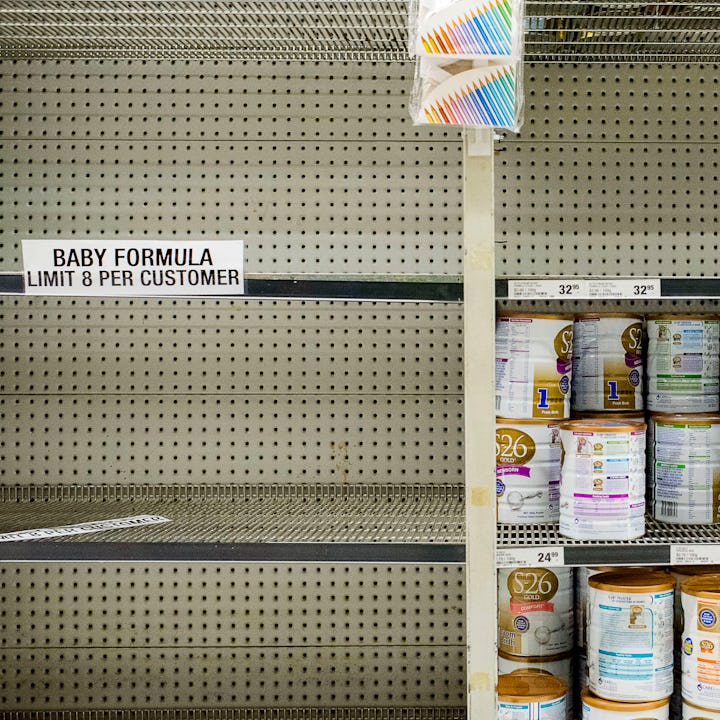America Is Dealing With A Powdered Infant Formula Shortage
Certain Similac, Alimentum, and Elecare products were recalled a month ago, and now parents are having a hard time finding powdered infant formula in stores.

On Feb. 17, Abbott Nutrition recalled several of its powdered infant formulas linked to bacterial infections that lead to the hospitalization of at least five babies and the death of two. Certain lots of Similac, Alimentum, and EleCare infant formulas, along with one batch of Similac PM 60/40, were pulled off the shelves, and the FDA and the CDC are investigating consumer complaints about the recalled products.
The recall, combined with the supply chain complications of the pandemic, has caused a shortage in powdered infant formula across the country, leading some retailers like Walgreens to limit how much powdered formula a customer can buy at a time.
According to Datasembly, 30% of formula was out of stock as of mid-March in 24 U.S. states. Other states experienced even more severe shortages, like in Minnesota, where 54% of baby formula products were out of stock. For comparison, between 2% and 8% of baby formula products were out of stock the first seven months of 2021.
"Infant formula manufacturers are actively working with suppliers, distributors, retailers and state agencies to ensure availability and access to infant formula products, to quickly address the needs of babies everywhere," the Infant Nutrition Council of America said in a statement.
For some parents, this might be a frustrating but ultimately navigable issue. As long as an infant isn’t on a specialized formula, like a hypoallergenic or medical one, switching to a new brand shouldn’t present too many complications.
“There may be a little gastrointestinal adjustment if switching protein or carbohydrate sources, but generally babies do just fine,” Tracy Milbrandt, a pediatrician and associate professor of clinical pediatrics at Southern Illinois University School of Medicine, told New York Times.
So what do parents do in the meantime if they are having a hard time finding formula at the grocery store? To avoid another era like the toilet paper and hand sanitizer shortages of 2020, experts are advising parents to buy two weeks of supplies at most. Watering down or diluting formula in an effort to stretch it out should also be avoided, as this can lead to electrolyte imbalances for the baby.
Parents are also encouraged to reach out to their pediatrician if they have any concerns about switching baby formulas or running into feeding issues with a different brand.
Check to see if baby formula in your home was part of a recalled lot over on Abbott’s Check Lot website.